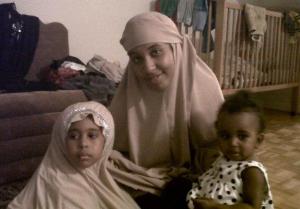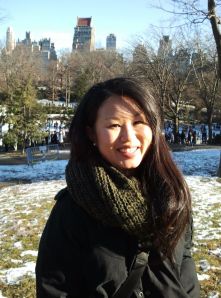Malika Salih is a quiet woman, but when she speaks, her words are chosen wisely and spoken with so much passion that it stuns you. Malika often talks about philanthropy in Canada concerning minority cultures. Most interestingly, Toronto cannot consider them minorities anymore. With Malika’s upbringing, culture and heritage, as well as experience and education she will change the way Canada views and undertakes philanthropy.
Here is Malika’s story:
What drove you to choose a career in philanthropy?
“Philanthropy was always a part of my life, but it was only after I accidentally found Humber’s Fundraising and Volunteer Management program that I learned that I can actually make this my career.”
Were there any injustices that pushed you towards philanthropy?
“My parents came to Canada as refugees leaving behind friends and family. They are Oromo. Oromo is the largest ethnic group in Ethiopia and the Oromo’s have been oppressed for decades. My dad always tells me of what it was like when he was a young man and he first heard the bombs explode. He would tell me about everything they did just to stay alive. Even though this was more than thirty years ago he still remembers it like it was yesterday. His story is so detailed that I can picture it in my mind; it’s like I’m watching a war movie. Sometimes I have to remind myself that it was real life. I am fortunate to have grown up in a country like Canada and I am always grateful for what I have.
Being the fortunate ones to have made it over to Norh America, it was the duty of my parents to help those who were left behind. Even though my parents were struggling to make a living here in Canada, they would never stop sending money over to Ethiopia. It was the norm to send money back home every few weeks. One day I hope to write a book or create a documentary film to capture the stories of the Oromo people. They are my heroes.”
How have your travel experiences effected the way you view the world, the way you view philanthropy? Is there anyone you met along the way that pushed you, whether they knew it or not, into this field?
“In 2006, I was fortunate enough to go back home to Ethiopia. My family has been sending money back to Ethiopia for years to friends and family, and I was finally able to meet them. I spent 2 months there and was able to eat, play and live with them. I saw the children and the schools. I saw how they travelled and cooked. It was inspiring. I promised one of the schools there that I would help them as much as I can as soon as I went back to Canada. My family has been fundraising for Bilal School ever since. It’s great working with them because they update us every year with what they have done with the money by documenting it on DVD. I hope to go back one day with my own kids.”
How do you feel your culture has affected the way you view philanthropy?
“Charity is also a part of my faith; it is one of the 5 pillars of Islam. Apart from the voluntary acts of kindness, Muslims are required to donate 2.5% of their yearly income to charity. One of my favourite quotes which inspires me is from the Prophet Mohammed (pbuh): ‘Charity is prescribed for each descendant of Adam every day the sun rises’ He was then asked: ‘From what do we give charity every day?’ The Prophet answered: ‘The doors of goodness are many … enjoying good, forbidding evil, removing harm from the road, listening to the deaf, leading the blind, guiding one to the object of his need, hurrying with the strength of one’s legs to one in sorrow who is asking for help, and supporting the feeble with the strength of one’s arms – all of these charity prescribed for you.’ He also said: ‘Your smile for your brother is charity.’ This is just an example of how I view charity. It’s not only about the money; even smiling is charity.”
Why is your work important?
“My work is important because I know that if my parents were not brave enough to escape Ethiopia years ago, I wouldn’t be here today. I would probably be in Ethiopia and hoping that somebody in Canada would be generous enough to send money to my family so that I could feed my children. I have two children of my own and I can only imagine what mothers go through in Ethiopia. I must give back; I must help and pay it forward. And having a career in philanthropy is a blessing.”
What else would you be doing to make you happy?
“I am also the founder of Oromo Family Conference, which I first organized in 2012. The second annual conference is coming up very soon. The goal of this event is to strengthen the Oromo community in Toronto. It brings families and people of all ages together to discuss issues affecting the Oromo community here and in Ethiopia.”
What is your dream for your children’s world?
“My dream for my children is for them to know that it is important to work hard and persevere. I want them to know that they can make a difference in this world as individuals. I want them to be grateful for what they have and to never forget that it is their responsibility to help those who are in need.”
If Malika’s story didn’t give you goosebumps then I don’t know what will. Malika is a passionate young woman who believes our world can be a better place. She puts her efforts into helping others. Through her beliefs and values she has already begun her journey and empowered others. What will you do to change the world?



